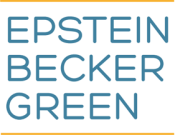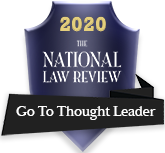Epstein Becker & Green, P.C.
Epstein Becker & Green, P.C., is a national law firm with a primary focus on health care and life sciences; employment, labor, and workforce management; and litigation and business disputes.
Founded in 1973 as an industry-focused firm, Epstein Becker Green has decades of experience serving clients in health care, financial services, retail, hospitality, and technology, among other industries, representing entities from startups to Fortune 100 companies.
Operating in locations throughout the United States and supporting domestic and multinational clients, the firm’s attorneys are committed to uncompromising client service and legal excellence.
For more information, visit www.ebglaw.com.














